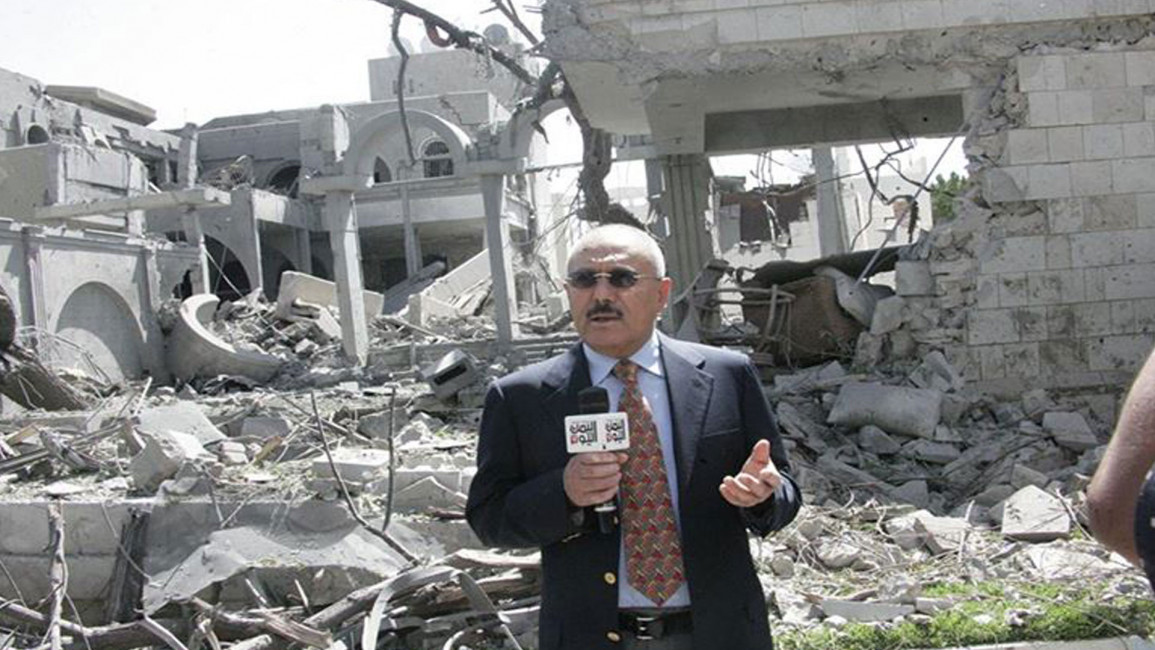Yemen's Saleh 'aided al-Qaeda' documentary claims
Former Yemeni president Ali Abdullah Saleh is having a difficult time of late: his residence in Sanaa has been destroyed by Saudi airstrikes, his forces are fighting for control of Yemen, and he finds himself sanctioned by the United Nations for hindering the country's post-2011 political transition.
Yet now he finds himself with another accusation to contend with – facilitating global militant network al-Qaeda's most powerful affiliate, the Yemen-based al-Qaeda in the Arabian Peninsula (AQAP).
A documentary aired last night on al-Jazeera, al-Qaeda Informant, tells a tale of deceit and murky links between the Yemeni government and a group that was meant to be its sworn enemy.
Hani Muhammad Mujahid was already a member of al-Qaeda before 9/11, had trained in Afghanistan, and had even met Osama Bin Laden.
But, after being released from a Yemeni prison in 2006, he was turned. And all for $750 a month.
Mujahid now says he became a spy for the Yemeni government – the only problem was, the information he was passing along did not appear to be leading to any action on the part of the Yemeni security forces.
Mujahid says he repeatedly tipped off his contacts in the intelligence services of a number of attacks, including the 2008 attack on the US embassy, and an attack in 2007 that killed 10, including 8 Spanish tourists.
Mujahid also said that it was Saleh's nephew, Colonel Ammar Saleh, who handed him the funds for the embassy attack.
Al-Jazeera was able to independently verify Mujahid's account of his time in Afghanistan, but not his period as an informant.
Rumours have abounded in Yemen over recent years of the Saleh regime's links to al-Qaeda, but, as of yet, nothing has been proven.
Adam Baron, a visiting fellow at the ECFR, quoted the words of a Yemeni parliament member to him in a recent piece.
“The fact is, the Yemeni government – any Yemeni government – benefits from the threat of al-Qaeda”.
That benefit could come from the ability to play the al-Qaeda card when necessary, or to elicit support from the US.
Perhaps it is too late, but the Americans may have been fooled by their former ally.







 Follow the Middle East's top stories in English at The New Arab on Google News
Follow the Middle East's top stories in English at The New Arab on Google News
![Lebanon after strikes [Getty]](/sites/default/files/styles/image_330x185/public/2184409977.jpeg?h=a5f2f23a&itok=7wpfQMyI)
![G20 Brazil [Getty]](/sites/default/files/styles/image_330x185/public/2184389194.jpeg?h=a5f2f23a&itok=t1DchCMY)
